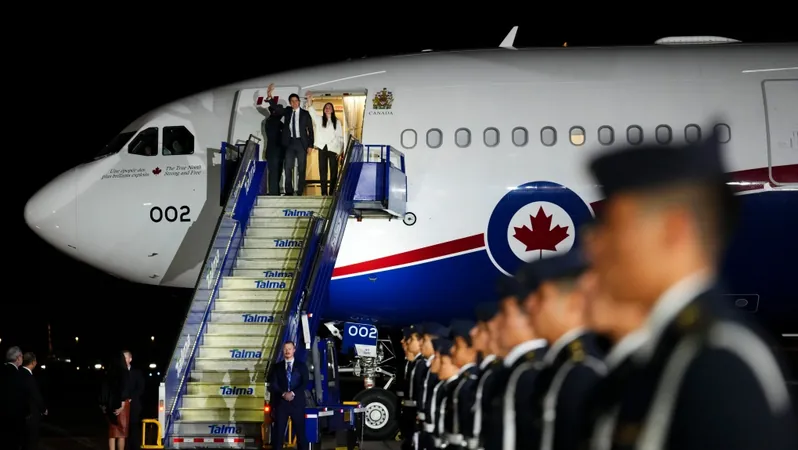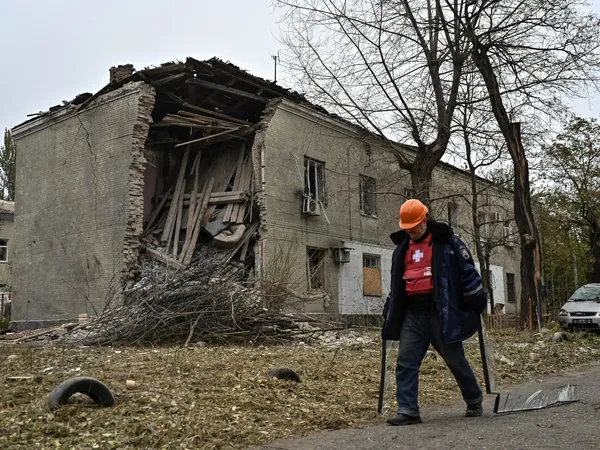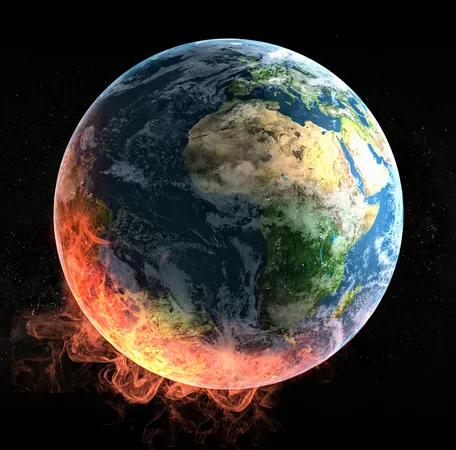
Trump’s Shadow Casts Over Global Summits: What It Means for Trudeau and the World
2024-11-15
Author: Michael
As U.S. President-elect Donald Trump prepares to take office, his policies are already sending shockwaves through upcoming global discussions in South America. Although Trump will not be in attendance, his “America First” agenda is poised to impact high-level talks at both the Asia-Pacific Economic Cooperation (APEC) summit in Peru and the G-20 summit in Brazil this week.
Canadian Prime Minister Justin Trudeau, who will be actively participating in these summits, is faced with the daunting prospect that Trump’s forthcoming presidency could destabilize the international priorities he aims to advocate, including peace, democracy, and adherence to a rules-based global order.
One major concern is Trump’s protectionist trade policies, which may disrupt global economic stability. He has signaled intentions to impose tariffs of 10-20% on all imports and as much as 60% on Chinese goods. Such moves would directly challenge the collaborative economic strategies that leaders like Trudeau hope to promote at APEC, where the theme revolves around empowerment, inclusion, and growth.
In Lima, Trudeau plans to discuss trade diversification and reducing dependence on China’s economy, which is particularly critical for Canada’s Indo-Pacific strategy. Further complicating matters, Trudeau is expected to advocate for Ukraine’s membership in NATO during his talks in Brazil, emphasizing Canada’s commitment to supporting Ukraine amidst continuous aggression from Russia.
Trump's previously expressed desire to negotiate a quick peace deal in Ukraine raises concerns that Western support could wane. This shift in focus could have dire implications for Ukraine’s fight against Russian expansion.
Further complicating the international landscape, the Trudeau administration must also navigate relationships with global leaders like China's President Xi Jinping and India’s Prime Minister Narendra Modi. Canadian officials are bracing for the impact of Trump's expected blanket tariffs, and while they anticipate that formal agendas will remain unchanged, informally, discussions are likely to revolve around how to manage the complexities of Trump's administration.
Christopher Sands, Director at the Wilson Center, suggests that Trump tends to favor bilateral negotiations where the U.S. can exert maximum leverage. This approach could pose challenges for Canada, which traditionally advocates for multilateral cooperation to foster trade while safeguarding human rights and environmental standards.
In light of Trump's past disarray when entering office, concerns arise about his team's current efficiency and preparedness. Just a week after the election, numerous cabinet appointments indicate a fast-track to implementing his policies, heightening anxiety among international allies.
Former diplomat and NAFTA negotiator Deanna Horton warns of potential trade coercion from both Trump and Xi, making it vital for Canada to forge new alliances. She identifies key partners such as Japan and South Korea, which share similar economic interests and could offer vital support.
While Canada looks to form strategic alliances to manage a Trump presidency, legal and international relations experts recommend a unified domestic front among all political parties. They argue this “Team Canada” approach will bolster Canada’s negotiating position against pressures from the U.S. and other global powers.
Errol Mendes, a university law professor, urges a proactive international strategy for Canada, emphasizing the necessity for resistance against unilateral actions from Trump without resorting to measures that could further harm global relations.
As Trudeau embarks on his Latin American trip, the implications of Trump’s presidency loom large, shaping not only Canadian strategy but potentially the stability of global economic relations in an increasingly transactional world. The stakes are high, and the coming weeks may set the tone for how nations respond to a new era in U.S. foreign policy.









 Brasil (PT)
Brasil (PT)
 Canada (EN)
Canada (EN)
 Chile (ES)
Chile (ES)
 España (ES)
España (ES)
 France (FR)
France (FR)
 Hong Kong (EN)
Hong Kong (EN)
 Italia (IT)
Italia (IT)
 日本 (JA)
日本 (JA)
 Magyarország (HU)
Magyarország (HU)
 Norge (NO)
Norge (NO)
 Polska (PL)
Polska (PL)
 Schweiz (DE)
Schweiz (DE)
 Singapore (EN)
Singapore (EN)
 Sverige (SV)
Sverige (SV)
 Suomi (FI)
Suomi (FI)
 Türkiye (TR)
Türkiye (TR)